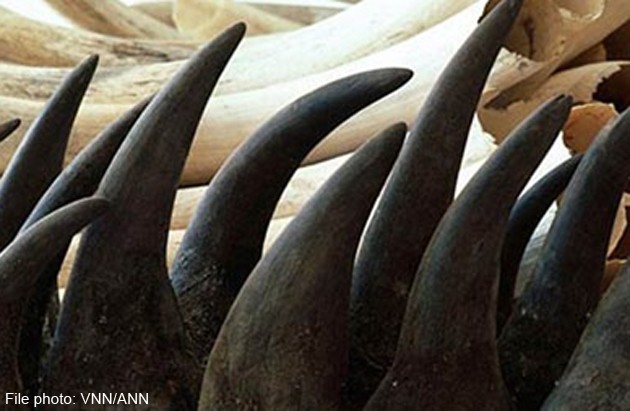Workshop held to raise awareness against rhino poaching

HAI PHONG - A workshop organised by the Women's Union of Hai Phong city to raise awareness about curbing demand for rhinoceros (rhino) horns was held this morning. The workshop was conducted in co-ordination with the Viet Nam Convention on International Trade in Endangered Species of Wild Fauna and Flora (CITES) and Human Society International.
In addition to providing information related to the survival of the rhino, the workshop also helped women understand and propagate to their community that rhino horns have no medicinal value.
At the conference, Do Quang Tung, Viet Nam CITES' Management Authority director, pointed out that the annual profits from trading of wild animals in the world has reached US$15 to $20 billion, especially for products, such as ivory and rhino horns. The consumer market is mainly based in Asia.
During recent years, Viet Nam has become one of the biggest consumers of rhino horns globally.
The Hai Phong Customs Department seizes about 20 tonnes of rhino horns each year that are shipped from Africa through Viet Nam and to other countries.
The illegal poaching of rhinos has led to an increased risk of the animal becoming extinct.
Women can play an important role in persuading people to change their minds about rhino horns being used to treat diseases, Tung added.
At the workshop, Teresa Telecky, Director of the Wildlife for Humane Society International (HSI), presented scientific evidence to prove the uselessness of rhino horns in treating diseases.
The last existing rhino was shot in Viet Nam in 2010.
Meanwhile, the incidence of rhino hunting has grown rapidly. Demand is also on the rise because people believe it can be used for treating cancer and promoted good health, Telecky added.
CITES Viet Nam has warned that protectors will start injecting poison into the rhino's horn to protect it from illegal hunting. The poison will not affect the rhino's body, but the persons using them will be poisoned directly.
In addition, there are many fake rhino horns available in the market, they warned.
Vietnamese's demand for rhino horns slipped by 38 per cent within a year after a campaign was launched against the practice in August 2013.